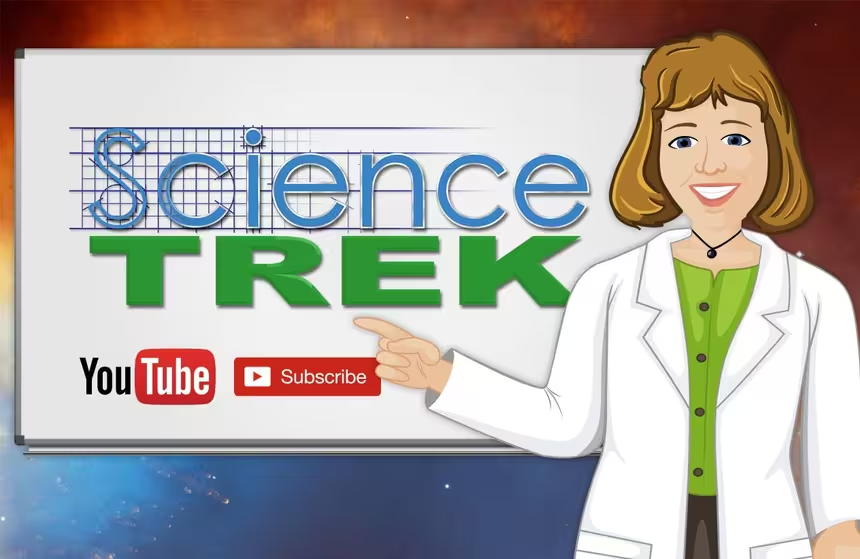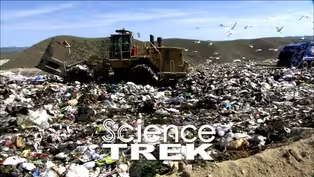
Garbage: Problem Garbage
Clip: Special | 1m 4sVideo has Closed Captions
What is E-waste?
Plastic waste is a serious problem for the world’s oceans. It piles up and ruins environments. It decays into microplastics that marine animals swallow and can kill them. Another problem is E-waste or electronics that cause problems when tossed into landfills.
Problems playing video? | Closed Captioning Feedback
Problems playing video? | Closed Captioning Feedback
Science Trek is a local public television program presented by IdahoPTV
Major Funding by the Laura Moore Cunningham Foundation and the Idaho National Laboratory. Additional Funding by the Friends of Idaho Public Television and the Corporation for Public Broadcasting.

Garbage: Problem Garbage
Clip: Special | 1m 4sVideo has Closed Captions
Plastic waste is a serious problem for the world’s oceans. It piles up and ruins environments. It decays into microplastics that marine animals swallow and can kill them. Another problem is E-waste or electronics that cause problems when tossed into landfills.
Problems playing video? | Closed Captioning Feedback
How to Watch Science Trek
Science Trek is available to stream on pbs.org and the free PBS App, available on iPhone, Apple TV, Android TV, Android smartphones, Amazon Fire TV, Amazon Fire Tablet, Roku, Samsung Smart TV, and Vizio.

Science Trek
Science Trek is a place where parents, kids, and educators can watch short, educational videos on a variety of science topics. Every Monday Science Trek releases a new video that introduces children to math, science, technology, engineering, and math (STEM) career potentials in a fun, informative way.(Science Trek music) JOAN CARTAN-HANSEN, HOST: Some types of garbage cause more problems than others.
Plastics make their way into the ocean.
Scientists estimate there are somewhere between four point eight and 12 point seven metric tons of plastic floating around the ocean.
Ocean currents have gathered discarded plastics into massive piles.
The great pacific garbage patch is twice the size of Texas.
And plastic doesn't decay.
It degrades into microplastics, small beads that are swallowed by marine animals and can kill them.
Another problem waste is electronics.
Every year, Americans throw out 130 million cell phones.
We throw out other electronics like, old televisions, game consoles, and computers.
All these things are called E-waste.
E-wastes contain valuable things like silver, gold, and palladium.
But these metals are difficult to extract.
E-waste also contains things like lead and mercury, that can seep into the soil and water and poison the environment.
There are lots of things that need to be disposed of properly and not just tossed in the trash.
For more information about garbage, check out the Science Trek website.
You’ll find it at ScienceTrek.org
Video has Closed Captions
Clip: Special | 1m 4s | Which city had the first trash collection? (1m 4s)
Providing Support for PBS.org
Learn Moreabout PBS online sponsorship
- Science and Nature

Explore scientific discoveries on television's most acclaimed science documentary series.

- Science and Nature

Capturing the splendor of the natural world, from the African plains to the Antarctic ice.












Support for PBS provided by:
Science Trek is a local public television program presented by IdahoPTV
Major Funding by the Laura Moore Cunningham Foundation and the Idaho National Laboratory. Additional Funding by the Friends of Idaho Public Television and the Corporation for Public Broadcasting.
